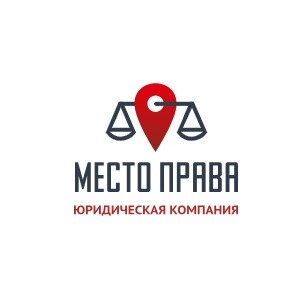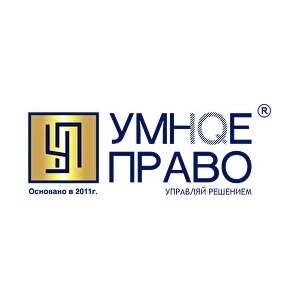Best Creditor Lawyers in Omsk
Share your needs with us, get contacted by law firms.
Free. Takes 2 min.
List of the best lawyers in Omsk, Russia
About Creditor Law in Omsk, Russia
Creditor law in Omsk, Russia, pertains to the regulations and statutes that govern the rights and obligations of creditors-individuals or entities to whom money or other assets are owed by debtors. This facet of law includes a wide range of activities, from the initiation of credit agreements to the collection of debts, and is intended to ensure that debtors fulfill their repayment obligations, while providing guidelines for fair debt collection practices. In Omsk, creditor law is influenced by both federal Russian legislation and local regulations.
Why You May Need a Lawyer
Engaging a lawyer is essential in various scenarios pertaining to creditor issues. If you are a creditor aiming to collect a debt, a lawyer can assist you in navigating the complexities of legal debt collection, drafting enforceable contracts, and representing you in court if a debtor disputes the obligation. Furthermore, if you are encountering aggressive debt collection tactics as a debtor, a lawyer can advise you on your rights and provide representation. Additionally, attorneys can be invaluable when it comes to restructuring debt or negotiating the terms of repayment to avoid litigation.
Local Laws Overview
The key aspects of local laws that are particularly relevant to creditor practices in Omsk chiefly adhere to Russia's federal laws, including the Civil Code, the Law on Insolvency (Bankruptcy), and the Law on Consumer Credit. These laws outline the legal framework for credit agreements, the rights of secured and unsecured creditors, the process of debt collection, and the bankruptcy procedures. In Omsk, as with the rest of Russia, creditors are obliged to follow the requirements of fair collection practices and are prohibited from applying unlawful pressure on debtors.
Frequently Asked Questions
1. What legal actions can a creditor take to collect a debt in Omsk?
In Omsk, creditors can pursue various legal actions to collect debts, including sending demand letters, filing for debt collection orders, and initiating bankruptcy proceedings against insolvent debtors.
2. Are there any restrictions on interest rates that can be charged by creditors?
Yes, interest rates in credit agreements are regulated by federal law, which sets maximum allowable rates to prevent usury and unreasonably high charges on debts.
3. How does bankruptcy law in Omsk affect creditors?
Bankruptcy law affects creditors in that they may have to register their claims with the bankruptcy estate, participate in creditors' meetings, and may receive payments through a bankruptcy distribution, often proportionate to the size of their claim and the debtor's available assets.
4. Can a creditor seize property in Omsk without a court order?
In most cases, a creditor must obtain a court order to seize property unless a pre-agreed upon collateral clause applies. Seizures without court orders are generally not permissible.
5. How long does a creditor have to collect a debt in Omsk?
The statute of limitations for collecting a debt in Russia is generally three years, but there are exceptions, and the period can be renewed under specific circumstances.
6. Can debt collection agencies operate in Omsk?
Yes, debt collection agencies can operate in Omsk, but they must adhere to legal standards concerning fair debt collection practices.
7. Is it possible to dispute a debt in Omsk?
Yes, a debtor can dispute a debt if there are legitimate grounds, such as errors in the credit agreement or evidence of fulfillment of the obligation.
8. What information must a creditor provide to the debtor?
Creditors must provide accurate and complete information regarding the debt, including the amount owed, the basis of the debt, and the specified repayment conditions.
9. Are creditors allowed to contact family members or employers regarding a debtor's debt?
Creditors are restricted in their communications with third parties regarding a debtor's debt and typically need the debtor's consent or a legal basis to contact family members or employers about such matters.
10. How can a foreign creditor enforce a debt against a debtor in Omsk?
A foreign creditor must typically initiate enforcement through Russian courts, which may involve international treaties and require adherence to Russian legal procedures.
Additional Resources
For those seeking legal advice on creditor issues in Omsk, resources such as the Regional Branch of the Federal Chamber of Lawyers, consumer rights organizations, and local legal aid services can be helpful. It is also recommended to consult the official websites of the Ministry of Justice of the Russian Federation and the Central Bank of Russia for up-to-date information on creditor law.
Next Steps
If you need legal assistance with creditor issues in Omsk, the advisable steps include:
- Consulting with a local attorney who specializes in creditor law to evaluate your case and outline your legal options.
- Gathering all relevant documentation, including credit agreements, correspondence, and proof of any payments made.
- Being informed about your rights and obligations under current Russian law to engage in negotiations or legal actions appropriately.
- Contacting local resources or legal aid organizations if you require more information or assistance.
Lawzana helps you find the best lawyers and law firms in Omsk through a curated and pre-screened list of qualified legal professionals. Our platform offers rankings and detailed profiles of attorneys and law firms, allowing you to compare based on practice areas, including Creditor, experience, and client feedback.
Each profile includes a description of the firm's areas of practice, client reviews, team members and partners, year of establishment, spoken languages, office locations, contact information, social media presence, and any published articles or resources. Most firms on our platform speak English and are experienced in both local and international legal matters.
Get a quote from top-rated law firms in Omsk, Russia — quickly, securely, and without unnecessary hassle.
Disclaimer:
The information provided on this page is for general informational purposes only and does not constitute legal advice. While we strive to ensure the accuracy and relevance of the content, legal information may change over time, and interpretations of the law can vary. You should always consult with a qualified legal professional for advice specific to your situation.
We disclaim all liability for actions taken or not taken based on the content of this page. If you believe any information is incorrect or outdated, please contact us, and we will review and update it where appropriate.









